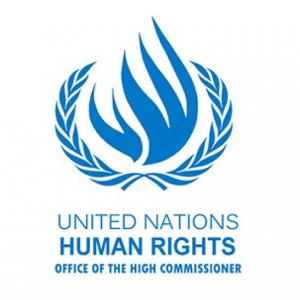How Internally Displaced Persons (IDPs) are treated in terms of getting access to food, shelter and medical services and whether their rights to enjoy these basic rights are not being violated, is a forefront activity of the UNAMI Human Rights Office, under its work on protection of civilians.
Thousands of Iraqi families continue to live in different displacement camps after ISIL invaded their homes and communities in June 2014. While some have returned to retaken areas, the camps still register new displaced individuals including women and children.
The UNAMI Human Rights Office as part of its activities to promote and protect the human rights of Iraqis, including the displaced, pay regular visits to IDP camps, screening sites, and other locations in retaken areas including in Ninewa Governorate to monitor their safe and voluntary return, welfare, and ensure that they are being treated with dignity and report any violations, if identified. On 14 September 2017, Regional Human Rights Officer, Dipesh Verma, went on a routine visit with Public Information Office- Erbil, to Hamam al- Alil and Nimrud sub-districts. The visit was also to monitor the status of about 1,400 individuals- women and children- of different nationalities, who were brought at the transit site in Hamam al-Alil.
“Living away from home in a strange environment and depending on scarce resources, waiting day- by- day for the next supply, is challenging, leaving displaced persons vulnerable”, a 55-year old man, living in Nimroud IDP camp said.
On this visit, he talked to Iraqi Security Force, camp managers at the transit and main camps, nurses at the clinic and some families of the displaced community. “We have come to visit you to make sure that you enjoy a full range of rights and also talk about any challenges that you may be facing, including safe return to your homes…whatever information you share with us will only be used with your approval and will be treated in a confidential manner, we ensure the principle of ‘do no harm’, he told the head of a family he spoke to at Nimrud IDPs camp to reassure interviewees that their best interest is the priority.
“It was around 11 in the morning and ISIL intensified their attack against Iraqi Security Force (ISF) in west Mosul. I joined a group of civilians, who were planning to flee towards ISF locations for safety. When we were about to cross al-Saha neighborhood, I heard several bullet sounds and suddenly I fell unconscious. When I regained consciousness, I found myself in an ISF clinic together with my other 10 colleagues- we all sustained bullet injuries. Later, we went to the screening site and further to this IDP camp”, said a woman injured in an incident in which ISIL sniper killed three civilians and wounded 11 others in west Mosul on 24 April.
UNAMI HRO collects information, verify facts and ensure documentation of violations and abuses of international human rights and humanitarian norms is made in line with strict monitoring methodologies. HRO issues regular human rights reports. The Office reported eight times between June 2015 and August 2017 that most serious crimes may have been committed in the conflict.
Reports available on UNAMI and OHCHR websites in Arabic and English, strongly suggests that international crimes may have been perpetrated by the so-called Islamic State in Iraq and the Levant (ISIL) in the last three years during the group control over large parts of Iraq. Serious and systematic violations of international humanitarian law and gross abuses and violations of human rights have been perpetrated by ISIL, in particular mass killings and abduction, sexual slavery and heavy destruction of religious and cultural sites.



